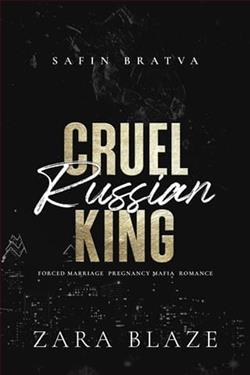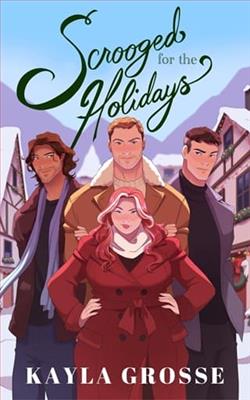Page 121 of It Happened on the Lake
“Really? Is that all you can say when a woman died on your watch—that you need to turn over the room?” he asked, and when she didn’t respond, he realized that Allison Gray dealt with death on a monthly or often weekly basis. One way or another, this was the last stop for a lot of people.
But not under conditions like this.
“I would hate to have to charge her estate for another month,” she said firmly.
“My mother died a horrible, grisly death.”
“Yes. I’m aware. It’s awful. As I said, my condolences.” She managed a quick, insincere smile as she slipped the pages into an envelope and handed the packet to him. “Please bring these back with you when you clean out her belongings.” Her icy smile was back in place. “And again, Mr. Hunt, I’m truly sorry for your loss.”
“As you’ve said a couple of times.”
“Yes, well. Your mother was—”
He didn’t hear the rest. Didn’t want to. No amount of platitudes would suffice. And if they charged him for another month’s services, so be it. He’d take his own damned time.
In the reception area again, he turned away from the exit and reception desk, passing by the wide dining room with its plastic-covered chairs situated around an array of tables. The dining area opened to a veranda. Through the glass doors was a calming view of the well-kept lawn and trees with bird feeders swinging in the breeze. Two elderly women, one of them in a wheelchair, were deep in conversation near a huge coffee urn.
He wondered if they’d known his mother but left them to their conversation as he entered Hallway C and ignored the faint smell of pine cleaner as he walked to room C-112. His mother’s name was listed on a placard on the door: Mrs. Cynthia Hunt. Above the placard someone had hung two decorative ears of Indian corn, dry husk open, colorful kernels exposed. A nod to the season.
His jaw tightened, and for a second he remembered his mother as she had been when he was growing up, a tall, willowy blond with an affinity for Virginia Slims, fake fur coats, and dry martinis. She’d been a smart woman, wily in her youth.
Mrs. Cynthia Hunt had an infectious laugh and a naughty twinkle in her brown eyes, and a sharp tongue that her husband often dulled.
That was until her eldest son vanished.
Then everything changed.
Everything.
The sparkle. Gone.
The sarcastic wit. Disappeared.
Even her perfectly coiffed blond hair had dulled and become unkempt, her gray roots often showing.
Their family had been gutted, and rather than growing closer, the three had been driven further apart.
And then her husband, too, left her. In the very boat that he’d cherished, the Triton that somehow had been left idling in the lake when Chase had vanished.
After that, Mrs. Cynthia Hunt had lost the ability to distinguish between reality and fantasy. She’d told him of conversations she’d had with “Tommy” and that Chase had visited her on occasion. He’d suggested that the visits and conversations had been in her dreams, but he couldn’t convince her of the truth, so a few months ago, he’d stopped trying.
Even when she called him Chase.
He’d let it go, rather than argue and confuse her more.
He pushed open the door and was met with a mess. Yes, the police had been here. Though his mother hadn’t been the neatest homemaker on earth, and certainly whatever skills she’d once possessed had declined over the years, she wouldn’t have left drawers open and belongings scattered throughout the two rooms.
He braced himself.
Going through her things was going to be tough.
But maybe, just maybe, he’d find something the police had overlooked. Something that would give him some inkling as to what had gone on the other night. He hoped to God he was right.
He had an appointment later today with a woman who was certain her husband was cheating on her and needed proof. He was the man for the job these days, even if some tasks cut a little close to the bone. But he’d come back another time with boxes and figure out where to donate her belongings. Again, he was plagued by the same questions that had haunted him since he’d first heard the unthinkable news. How? Why? How did she manage it?
He caught sight of a picture on the wall—the family at the Seattle World’s Fair in 1962. They stood on the revolving observation deck of the Space Needle. Dad in his narrow tie and sport coat, Mom wearing a sleeveless pink dress. Chase, at thirteen starting to lengthen out, while Levi was at the age when he’d thought he’d never grow. In the photo his brother and father towered over him while his mother’s hands rested gently on his shoulders, her fingernails painted frosty pink to match her lipstick.
Happier times, he thought now and abruptly left his mother’s room at the nursing facility. He nearly ran over a gray-haired septuagenarian bent over a walker.















